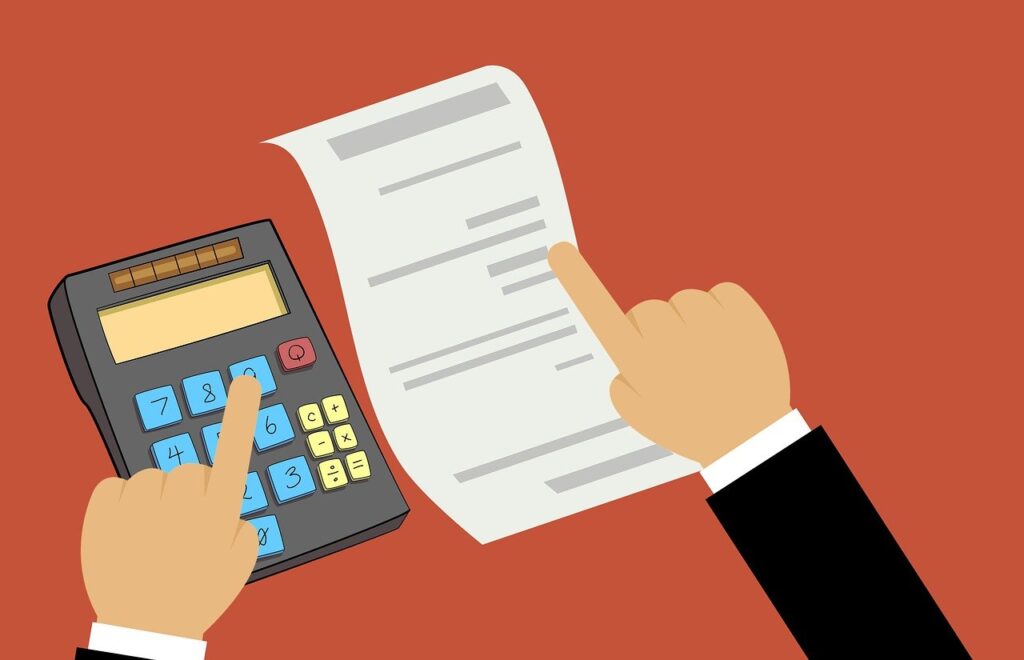Tax benefits for homeowners are designed to make homeownership more affordable and encourage people to continue buying homes, which can help the economy. These credits and deductions for homeowners can vary each tax season, but many of them last for several years, giving homeowners everything from property tax relief to deductions for their mortgage insurance.
6 Tax Deductions for Homeowners- Property Taxes
- Mortgage Interest
- Home Equity Loan Interest
- Necessary Home Improvements
- Discount Points
- Expenses for Your Home Office
- Energy Efficient Home Improvement Tax Credit
- Residential Clean Energy Credit
- Mortgage Tax Credit
- Installation of EV Charging Equipment Credit
How Does Having a Mortgage Help with Taxes?
A home is one of the most important pieces of a person’s personal finances. In fact, it can also become one of the top investment strategies for homeowners with an understanding of how to get as many benefits as possible from their homes.
Since owning a home is expensive, especially when it comes to renovations, it’s especially important to learn how owning real estate can actually lead to saving money at the end of the tax year. Fortunately, several tax breaks exist to help homeowners save money, whether they want to get out of debt or save money for home upgrades.
A deduction decreases your taxable income, while a credit decreases the amount you owe in taxes. Although they work differently, both can help you spend less money on your tax bill.
It’s important to note that some deductions are only available for homeowners who itemize their deductions. Itemized deductions are a number of separate deductions taxpayers can claim to lower their tax bill. A standard deduction is a fixed amount that reduces taxable income.
6 Tax Deductions for Homeowners

Let’s start with tax deductions for homeowners. A tax deduction lowers your income for tax purposes. Your tax bracket and, consequently, how much you owe in taxes, depends on your taxable income. When it’s reduced by a tax deduction for homeowners, you could have less to owe.
Be aware that as of this writing, the following tax deductions for homeowners are current. However, tax deductions change over time, with some being removed and others added, such as the private mortgage insurance deduction that ended in 2022. The best way to ensure that you’re getting tax breaks for everything you’re eligible for is to consult with a tax professional.
1. Property Taxes
Property tax is an additional expense that most homeowners have to pay. It’s tax specifically for the property, or land, your home sits on, usually getting paid to a county or city. A property tax deduction lets you deduct a portion or all of the property taxes you paid in a year from your taxable income.
Homeowners can deduct up to $10,000 of the property taxes they’ve paid or up to $5,000 if married and filing separately. Therefore, if you paid $12,000 in property taxes, $2,000 of that won’t be deductible. Still, deducting up to $10,000 of your property tax bill can lead to excellent tax savings. However, you must itemize your deductions to qualify for this deduction.
📌 Read our Ownwell review and discover a service that lowers your property taxes by appealing to your local county assessor on your behalf.
2. Mortgage Interest
Also only allowed for homeowners who itemize their deductions, a mortgage interest deduction gives homeowners the ability to deduct from their taxable income a portion of what they paid in interest for their mortgage during the tax year.
Currently, the interest on a mortgage of up to $750,000 for married couples filing jointly can be deducted, or on mortgages up to $375,000 if married filing separately. Unfortunately, a previous deduction allowing homeowners to deduct the cost of their mortgage premiums is no longer an active deduction. But with average mortgage rates in the 6-7% range, having this deduction on your taxes can equal impressive savings.
3. Home Equity Loan Interest
A home equity loan lets you borrow money against the equity you’ve built in your home. They can be helpful for paying off other debts or making home improvements. However, like any other type of loan, they also add interest to your principal balance, which makes you pay more for your loan over time.
Fortunately, you can deduct the interest that you’ve paid on your home equity loan from your taxes. However, it’s only tax deductible if your home equity loan purchases go toward the improvement or renovation of your home. For instance, if you used your home equity loan funds toward buying a new car, you can’t deduct the interest you pay against that purchase.
Also of note, the IRS only allows deductions on the interest for mortgage debt up to $750,000. Therefore, your mortgage loan and home equity loan must be under $750,000 for all interest debt to be deductible.
4. Necessary Home Improvements
The IRS allows you to deduct expenses for making necessary improvements to your home. What’s important to remember is that these improvements must fall under the necessary umbrella. Therefore, giving your bathroom a makeover won’t qualify, but adding a wheelchair lift to your stairwell for a household member likely will.
A good rule of thumb regarding this deduction is that if the improvement increases the value of your home, it probably won’t be allowable as a deduction. However, necessary repairs made to a home you rent or energy-efficient improvements could be tax deductible.
5. Discount Points
Discount points, also known as mortgage points, are offered for some mortgages to reduce the mortgage interest homeowners pay over the life of their loan. Taking one point requires you to pay 1% of your mortgage cost, meaning that a $200,000 home will require you to pay $2,000 for one point. However, doing this can lower your interest rate, usually between 0.125% and 0.25% per point.
In this scenario, these points – or, more specifically, the amount you pay for your points – would be tax deductible. In other words, if you spent $10,000 to buy five points, you could deduct the full $10,000 during the same tax year you got your mortgage and paid the points.
6. Expenses for Your Home Office

Self-employed homeowners who use an office in their home to work can deduct expenses related to their home office, such as repairs to the home office and necessary utilities, like internet and phone. People who use a home office to work for an employer may also be able to use this deduction.
The IRS allows two methods for deducting home office expenses. Homeowners with several expenses may prefer the regular method, which accounts for each specific expense. Still, homeowners can only deduct a percentage of their costs based on how much of the home is used as a home office.
Meanwhile, a simplified option makes this deduction easier to calculate. Rather than tallying expenses, homeowners can deduct $5 for every square foot of their home they use for their home office, up to 300 square feet. So, a 130-square-foot space offers a $650 deduction.
4 Tax Credits for Homeowners

Tax credits for homeowners get subtracted from the amount of tax you owe, which could help you get the tax refund you’re hoping for. Unfortunately, some valuable credits, like the first-time homebuyer tax credit, no longer exist to help homeowners save money on their federal income tax payments.
Still, combining each tax break listed below with the tax deductions outlined above can counteract the money you spend toward paying mortgage debt throughout the year.
1. Energy Efficient Home Improvement Tax Credit
This tax incentive encourages homeowners to upgrade their homes with energy-efficient improvements, like paying for a home energy audit or installing energy-efficient windows. Beginning in 2023 through 2032, homeowners can get credited for 30% of their eligible repairs or renovations, up to $1,200. However, the previous lifetime limit has been removed, meaning that you can complete eligible upgrades each year to receive up to the maximum credit for each tax year.
2. Residential Clean Energy Credit
The Residential Clean Energy Credit is another tax benefit similar to the Energy Efficient Home Improvement Tax Credit. However, this one is specifically for home improvement upgrades that enhance clean energy, like solar panel or fuel cell installation. Through 2032, homeowners can receive a credit of 30% of their relevant expenses with no annual cap or lifetime limit. So, upgrades worth $10,000 qualify for a $3,000 tax credit.
3. Mortgage Tax Credit
Low-income borrowers may qualify for a Mortgage Credit Certificate (MCC) from the IRS, which provides a credit of up to $2,000 on a homebuyer’s tax bill to offset the mortgage interest they’ve paid during the year. Homeowners must live in a state that offers MCCs and have eligible income to receive one. Most programs offer MCCs only to first-time homebuyers, although each state operates its programs a bit differently.
You can learn more about the mortgage tax credit by contacting your state’s Housing Finance Agency (HFA).
4. Installation of EV Charging Equipment Credit
The government provides a few interesting ways for homeowners to get credited on their taxes as a reward for making upgrades to their homes that improve energy efficiency or produce clean energy. These credits align with federal and state efforts to push clean energy and green policies. In addition to the Residential Clean Energy Credit and Energy Efficient Home Improvement Tax Credit, homeowners can get a tax credit for installing electric vehicle charging stations in their homes.
This tax credit is available through the 2032 tax year, allowing homeowners to take a credit worth 30% of the material and installation costs of installing the charging equipment. The tax credit caps at $1,000.
How to Ensure You Get the Right Tax Benefits as a Homeowner

The tax deductions and credits included in this guide are offered by the federal government. That means that any homeowner who is eligible for one of these benefits can take it, regardless of where in the United States they live. However, some states also have separate tax benefits for homeowners through special programs that can reduce their state tax bills or property taxes. For example, California homeowners can get a $7,000 reduction in their home’s value to calculate property tax.
The best way to make sure you’re getting every tax break you qualify for as a homeowner is to work with a professional accountant with experience in tax preparation for homeowners. An accountant can walk through your income, expenses, investments, and property with you to ensure you’re getting every credit and deduction available to you, including any breaks on interest, rental property upgrades, or property tax.
Even if you do work with a professional tax specialist, be sure to keep yourself informed of tax changes, which happen annually. As the economy changes, so do tax breaks, and it’s important to know what to expect well before you begin preparing your tax return for the year.






